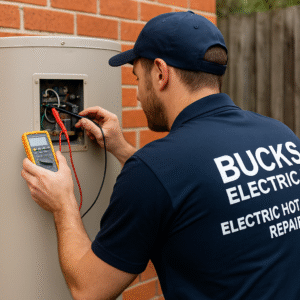The electrical trade offers a wide range of career opportunities, many of which provide lucrative salaries and long-term job security. For individuals seeking to maximize their earning potential, understanding which electrician jobs offer the highest pay and how to qualify for them is essential. From residential work to specialized industrial roles, the pathway to high-paying positions involves proper training, certifications, and hands-on experience.
This blog will explore the top high-paying electrician jobs, the skills and qualifications needed, and strategies to secure these rewarding roles.
Understanding the Electrical Industry
The electrical industry is diverse, encompassing residential, commercial, industrial, and specialized roles. Each area offers different responsibilities, challenges, and compensation. High-paying electrician jobs are often linked to complexity, risk, or specialized expertise.
Factors That Influence Electrician Salaries
Several factors impact how much an electrician can earn, including:
-
Specialization: Industrial, commercial, or high-voltage roles tend to pay more than standard residential work.
-
Experience: Experienced electricians with years of hands-on practice command higher wages.
-
Certifications and Licenses: Special certifications in areas like solar, HVAC, or industrial systems increase earning potential.
-
Location: Urban areas or regions with high demand for skilled electricians generally offer higher salaries.
-
Employment Type: Self-employed or contract electricians often have the potential to earn more per project than salaried employees.
High-Paying Electrician Jobs
1. Industrial Electrician
Industrial electricians work in factories, manufacturing plants, and processing facilities. They install, maintain, and repair electrical systems that power heavy machinery and production lines.
Why it pays well: Industrial electricians deal with high-voltage systems, complex equipment, and critical operations where downtime can be costly. Their expertise ensures safety and efficiency, making them highly valued in industrial settings.
Qualifications:
-
Completion of an electrician apprenticeship
-
Knowledge of three-phase electrical systems and industrial machinery
-
Certifications in safety and industrial controls
2. Commercial Electrician
Commercial electricians focus on large buildings such as offices, retail stores, and warehouses. They handle installations, upgrades, and maintenance of electrical systems that power lighting, HVAC systems, and advanced equipment.
Why it pays well: Commercial projects involve larger-scale wiring, higher responsibility, and often require working with contractors and engineers. Experienced commercial electricians are in high demand for complex projects.
Qualifications:
-
Journeyman or master electrician license
-
Experience with commercial electrical codes and building plans
-
Strong troubleshooting and project management skills
3. Electrical Contractor
Electrical contractors manage their own businesses, taking on residential, commercial, or industrial projects. They oversee teams of electricians and are responsible for budgeting, scheduling, and ensuring code compliance.
Why it pays well: Contractors earn not only from their work but also from managing projects and teams. Successful contractors can significantly increase their income by handling multiple projects simultaneously.
Qualifications:
-
Experience as a licensed electrician
-
Business and management skills
-
Ability to obtain permits and meet code requirements
4. Low Voltage and Telecommunications Electrician
Low-voltage electricians specialize in systems that operate on smaller electrical currents, such as:
-
Security systems
-
Fire alarms
-
Telecommunications and networking
-
Audio-visual installations
Why it pays well: Low-voltage electricians with specialized expertise are in high demand for commercial and residential installations, particularly in tech-savvy environments.
Qualifications:
-
Certification in low-voltage or specialized systems
-
Hands-on training through an electrician school or apprenticeship
-
Knowledge of networking and communication technologies
5. Renewable Energy Electrician
The growing renewable energy sector has created high-paying opportunities for electricians specializing in solar panels, wind turbines, and energy-efficient systems.
Why it pays well: These systems are complex and require specialized training. Businesses and homeowners are willing to pay a premium for certified professionals who can safely install and maintain renewable energy systems.
Qualifications:
-
Certification in solar or renewable energy systems
-
Knowledge of energy storage and smart grid technology
-
Experience in installation, maintenance, and troubleshooting
6. High-Voltage or Lineman Jobs
High-voltage electricians and utility linemen work on power distribution systems, including overhead and underground lines.
Why it pays well: This work involves significant risk, specialized knowledge, and physical demands. High-voltage electricians are highly compensated due to the technical skill and danger involved.
Qualifications:
-
Specialized lineman training programs
-
Safety certifications (OSHA, NFPA 70E)
-
Physical fitness and ability to work at heights
How to Qualify for High-Paying Electrician Jobs
Securing a high-paying electrician position requires a combination of education, practical experience, and certifications. Here’s how to position yourself for success:
1. Complete an Electrician School Program
Attending an electrician school provides the foundational knowledge required for all electrical careers. Students learn electrical theory, wiring techniques, safety practices, and code compliance. Schools also often offer hands-on labs, preparing graduates for real-world challenges.
2. Pursue an Apprenticeship
Apprenticeships combine classroom learning with on-the-job training under experienced electricians. This is a critical step in developing practical skills and building professional connections. Most licensing boards require apprenticeship hours for journeyman and master electrician licensing.
3. Obtain Licenses and Certifications
Licensing validates expertise and opens doors to higher-paying jobs. Common certifications include:
-
Journeyman electrician license
-
Master electrician license
-
Specialty certifications in solar, industrial, low-voltage, or renewable energy systems
-
Safety certifications such as OSHA or NFPA 70E
Certified electricians are eligible for more complex projects and higher pay.
4. Gain Experience
Experience matters. High-paying electrician jobs often require years of hands-on work in residential, commercial, industrial, or specialized roles. On-the-job experience builds problem-solving skills, efficiency, and reputation.
5. Stay Updated with Technology
Modern electrical systems integrate renewable energy, smart home technologies, and advanced building automation. Electricians who stay current with emerging technologies can qualify for specialized, higher-paying roles.
6. Network and Seek Mentorship
Networking with other professionals, contractors, and industry organizations can provide access to high-paying job opportunities. Mentorship from experienced electricians helps develop skills and guides career decisions.
Benefits of High-Paying Electrician Jobs
Pursuing high-paying electrician jobs offers multiple advantages:
-
Financial Stability: Competitive salaries allow for long-term financial security.
-
Career Growth: Specialized skills and certifications lead to promotions and leadership roles.
-
Job Security: Skilled electricians are always in demand across industries.
-
Variety of Work: High-paying roles often involve diverse projects and responsibilities.
-
Professional Recognition: Certifications and advanced skills increase credibility and reputation.
Conclusion
High-paying electrician jobs are available in residential, commercial, industrial, renewable energy, and specialized sectors. Securing these roles requires a combination of education, hands-on experience, licensing, and ongoing professional development.
Whether you aspire to become a commercial electrician, an industrial specialist, or a renewable energy expert, completing an electrician school, pursuing certifications, and gaining real-world experience are essential steps toward achieving financial and professional success.
For guidance, training, and career support in securing high-paying electrician jobs, partnering with Madison Electric Company provides access to expert mentorship, hands-on opportunities, and a pathway to long-term growth and achievement in the electrical industry.




